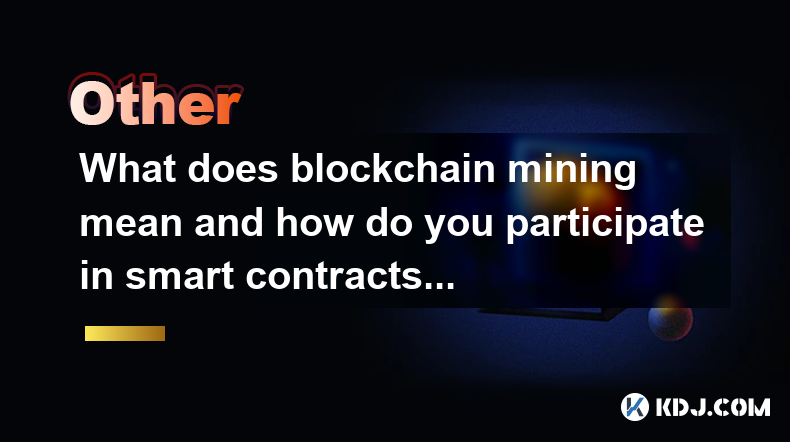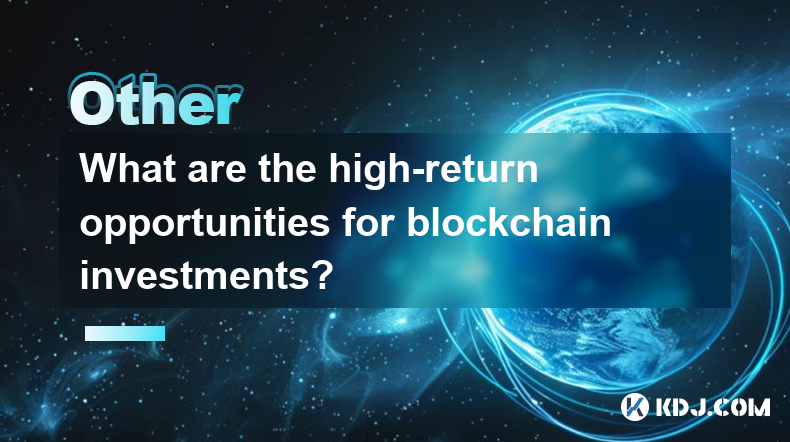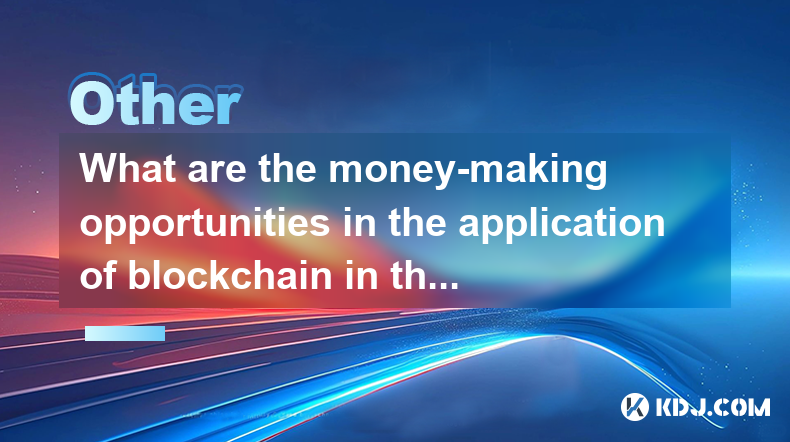-
 Bitcoin
Bitcoin $76,444.7530
-3.77% -
 Ethereum
Ethereum $1,473.8355
-5.46% -
 Tether USDt
Tether USDt $0.9991
-0.08% -
 XRP
XRP $1.7965
-5.51% -
 BNB
BNB $553.4919
-0.36% -
 USDC
USDC $0.9999
-0.02% -
 Solana
Solana $105.2981
-1.74% -
 TRON
TRON $0.2303
0.81% -
 Dogecoin
Dogecoin $0.1422
-4.62% -
 Cardano
Cardano $0.5587
-4.41% -
 UNUS SED LEO
UNUS SED LEO $8.9866
1.01% -
 Toncoin
Toncoin $2.9933
-4.74% -
 Chainlink
Chainlink $10.9113
-4.81% -
 Stellar
Stellar $0.2215
-4.76% -
 Avalanche
Avalanche $16.1163
-3.29% -
 Sui
Sui $1.9371
-3.89% -
 Shiba Inu
Shiba Inu $0.0...01065
-6.69% -
 Hedera
Hedera $0.1469
-3.29% -
 MANTRA
MANTRA $6.2058
-1.53% -
 Dai
Dai $1.0000
0.01% -
 Bitcoin Cash
Bitcoin Cash $269.3457
-2.08% -
 Polkadot
Polkadot $3.3773
-5.87% -
 Litecoin
Litecoin $69.2204
-2.50% -
 Ethena USDe
Ethena USDe $0.9986
-0.01% -
 Bitget Token
Bitget Token $4.0180
-3.25% -
 Pi
Pi $0.5649
-4.50% -
 Hyperliquid
Hyperliquid $11.1928
-2.80% -
 Monero
Monero $195.3885
-4.41% -
 OKB
OKB $50.9235
-0.59% -
 Uniswap
Uniswap $4.7688
-6.95%
What does blockchain mining mean and how do you participate in smart contracts for mining?
Smart contracts automate mining rewards on platforms like Ethereum, enhancing fairness and efficiency, but technical complexity and crypto volatility pose challenges.
Apr 07, 2025 at 04:56 am

Blockchain mining is a critical process in the world of cryptocurrencies, particularly for networks like Bitcoin and Ethereum. Mining involves solving complex mathematical problems to validate transactions and add them to the blockchain, a decentralized ledger of all transactions. Miners use powerful computers to compete in solving these problems, and the first to solve it gets to add a new block to the chain and is rewarded with cryptocurrency. This process not only secures the network but also introduces new coins into circulation.
The concept of mining originated with Bitcoin, where miners compete to solve cryptographic puzzles. The difficulty of these puzzles adjusts periodically to maintain a consistent block addition rate, ensuring the network's stability and security. Miners who successfully add a block to the Bitcoin blockchain are rewarded with newly minted bitcoins and transaction fees. This incentivizes miners to continue supporting the network, as their efforts are directly compensated.
The Role of Smart Contracts in Mining
Smart contracts, a feature introduced by platforms like Ethereum, have revolutionized the way mining can be approached. Smart contracts are self-executing contracts with the terms directly written into code. They automatically enforce and execute the terms of a contract when certain conditions are met, without the need for intermediaries. In the context of mining, smart contracts can be used to automate and manage the distribution of mining rewards and to ensure that miners adhere to the agreed-upon rules.
Participating in smart contracts for mining involves several steps. First, a miner needs to understand the specific smart contract they are engaging with. These contracts can be found on various blockchain platforms, most notably Ethereum. Miners then need to connect their mining hardware to the network and ensure it is compatible with the smart contract's requirements. Once set up, the smart contract will automatically handle the distribution of rewards based on the miner's contribution to the network.
How to Participate in Smart Contracts for Mining
Choose a Blockchain Platform: Start by selecting a blockchain platform that supports smart contracts, such as Ethereum. Research the platform's mining requirements and the specific smart contracts available for mining.
Set Up Mining Hardware: Ensure you have the necessary mining hardware, such as GPUs or ASICs, that are compatible with the chosen blockchain's mining algorithm. Configure your hardware to connect to the network and participate in the mining process.
Understand the Smart Contract: Before engaging with a smart contract, thoroughly read and understand its terms. Smart contracts can vary widely in their functionality and rewards structure, so it's crucial to know what you're agreeing to.
Connect to the Smart Contract: Use a compatible wallet or mining software to connect to the smart contract. This usually involves interacting with the smart contract's address on the blockchain and setting up the necessary permissions.
Start Mining: Once connected, start mining according to the smart contract's rules. The contract will automatically track your contributions and distribute rewards accordingly.
Monitor and Adjust: Regularly monitor your mining performance and the smart contract's execution. Adjust your strategy as needed to optimize your mining efficiency and rewards.
Benefits of Using Smart Contracts for Mining
Using smart contracts for mining offers several advantages. Firstly, it automates the reward distribution process, reducing the need for manual intervention and ensuring fairness. Secondly, smart contracts can enforce rules and conditions that miners must follow, enhancing the security and integrity of the mining process. Additionally, smart contracts can facilitate more complex reward structures, such as staking or pooled mining, which can be more lucrative for miners.
Challenges and Considerations
Despite the benefits, there are challenges to consider when participating in smart contracts for mining. The technical complexity of smart contracts can be a barrier for some miners, requiring a deeper understanding of blockchain technology and coding. Additionally, the volatility of cryptocurrency prices can impact the profitability of mining. Miners must also be aware of the potential for smart contract vulnerabilities, which could lead to financial losses if exploited.
The Future of Mining with Smart Contracts
The integration of smart contracts into mining is still evolving, with new platforms and technologies continually emerging. As blockchain technology advances, we can expect to see more sophisticated smart contracts that offer greater flexibility and efficiency in mining operations. This could lead to more decentralized and democratic mining processes, where miners have greater control over their rewards and the overall governance of the network.
Common Questions Related to Blockchain Mining and Smart Contracts
Q: What is the primary purpose of blockchain mining?
A: The primary purpose of blockchain mining is to validate and add transactions to the blockchain, ensuring the network's security and integrity. Miners are rewarded with cryptocurrency for their efforts, which also introduces new coins into circulation.
Q: How do smart contracts enhance the mining process?
A: Smart contracts automate the distribution of mining rewards and enforce rules that miners must follow, ensuring fairness and reducing the need for manual intervention. They can also support more complex reward structures, enhancing the profitability and efficiency of mining.
Q: What hardware is needed for blockchain mining?
A: The hardware required for blockchain mining depends on the specific blockchain's mining algorithm. For Bitcoin, ASICs (Application-Specific Integrated Circuits) are commonly used, while Ethereum mining often utilizes GPUs (Graphics Processing Units).
Q: Can anyone participate in smart contracts for mining?
A: Yes, anyone with the necessary hardware and understanding of the blockchain platform can participate in smart contracts for mining. However, the technical complexity and initial investment in hardware can be barriers for some.
Q: What are the risks associated with smart contracts in mining?
A: The main risks include the technical complexity of smart contracts, which can lead to errors or vulnerabilities, and the volatility of cryptocurrency prices, which can affect mining profitability. Miners must also be cautious of potential smart contract exploits that could result in financial losses.
Q: How does the difficulty of mining affect the process?
A: The difficulty of mining adjusts periodically to maintain a consistent rate of block addition to the blockchain. Higher difficulty means more computational power is required to solve the cryptographic puzzles, which can impact the profitability and feasibility of mining.
Q: What is the role of miners in maintaining the blockchain network?
A: Miners play a crucial role in maintaining the blockchain network by validating transactions and adding them to the blockchain. Their efforts ensure the network's security and integrity, and they are rewarded with cryptocurrency for their contributions.
Q: How can miners optimize their participation in smart contracts?
A: Miners can optimize their participation by thoroughly understanding the smart contract's terms, regularly monitoring their mining performance, and adjusting their strategy as needed. Joining mining pools or staking can also enhance their rewards and efficiency.
Q: What future developments can we expect in blockchain mining with smart contracts?
A: Future developments may include more sophisticated smart contracts that offer greater flexibility and efficiency in mining operations. This could lead to more decentralized and democratic mining processes, with miners having greater control over their rewards and the overall governance of the network.
Q: How do transaction fees factor into the mining process?
A: Transaction fees are an additional reward for miners, paid by users to prioritize their transactions. Miners often choose to include transactions with higher fees in the blocks they mine, as this increases their overall reward.
Disclaimer:info@kdj.com
The information provided is not trading advice. kdj.com does not assume any responsibility for any investments made based on the information provided in this article. Cryptocurrencies are highly volatile and it is highly recommended that you invest with caution after thorough research!
If you believe that the content used on this website infringes your copyright, please contact us immediately (info@kdj.com) and we will delete it promptly.
- "Cardano (ADA) Price Could Dip Below $0.60, Following Previous Market Cycle"
- 2025-04-09 05:10:12
- BONK, the well-known meme coin, has risen over 35% in the last week, attracting meme coin investors in the market. So, what caused this rally?
- 2025-04-09 05:10:12
- Bitcoin (BTC) Investors May Not Exactly Feel It, but BTC Has Been a Relatively Good Bet
- 2025-04-09 05:05:12
- Donald's Bitcoin (DONBTC) Could Turn Early Investors into Multi-Millionaires, Like Shiba Inu (SHIB) and Dogecoin (DOGE) Did
- 2025-04-09 05:05:12
- 6 Upcoming Kraken Listings That Could Be the Next Big Thing in Crypto
- 2025-04-09 05:00:13
- COTI Unveils New Privacy-Focused Blockchain to Reshape Web3 Transactions
- 2025-04-09 05:00:13
Related knowledge

Is the ranking of Chinese blockchain apps real and reliable?
Apr 04,2025 at 09:01pm
The ranking of Chinese blockchain apps has become a topic of interest for many in the cryptocurrency community, as it provides insights into the popularity and adoption of blockchain technology within China. However, the reliability and authenticity of these rankings are often questioned. This article aims to delve into the factors that influence these ...

What are the future development trends of blockchain game development?
Apr 03,2025 at 05:00am
Blockchain technology has revolutionized various industries, and gaming is no exception. As we look to the future, several trends are set to shape the development of blockchain games. These trends not only promise to enhance the gaming experience but also to integrate blockchain technology more seamlessly into the gaming ecosystem. Let's explore these t...

What are the high-return opportunities for blockchain investments?
Apr 05,2025 at 02:35pm
Blockchain technology has revolutionized the financial world, offering numerous high-return investment opportunities. These opportunities span various sectors within the cryptocurrency ecosystem, including cryptocurrencies, decentralized finance (DeFi), non-fungible tokens (NFTs), and blockchain startups. Each of these areas presents unique risks and re...

What are the maintenance costs of blockchain system development?
Apr 03,2025 at 06:07pm
The maintenance costs of blockchain system development are multifaceted and depend on various factors. These costs can include technical maintenance, security updates, infrastructure expenses, and personnel costs. Understanding these elements is crucial for anyone planning to develop or maintain a blockchain system. Technical MaintenanceTechnical mainte...

What are the money-making models of blockchain games?
Apr 04,2025 at 02:00pm
Blockchain games have emerged as a revolutionary way for players to earn real money while enjoying their favorite pastime. These games leverage the power of blockchain technology to create unique money-making models that benefit both the players and the developers. In this article, we will explore the various money-making models of blockchain games and ...

What are the money-making opportunities in the application of blockchain in the field of Internet of Things?
Apr 05,2025 at 10:35pm
The integration of blockchain technology with the Internet of Things (IoT) presents numerous money-making opportunities. Blockchain, with its decentralized and secure nature, can revolutionize how IoT devices interact, manage data, and conduct transactions. This article will explore various avenues where entrepreneurs, developers, and investors can capi...

Is the ranking of Chinese blockchain apps real and reliable?
Apr 04,2025 at 09:01pm
The ranking of Chinese blockchain apps has become a topic of interest for many in the cryptocurrency community, as it provides insights into the popularity and adoption of blockchain technology within China. However, the reliability and authenticity of these rankings are often questioned. This article aims to delve into the factors that influence these ...

What are the future development trends of blockchain game development?
Apr 03,2025 at 05:00am
Blockchain technology has revolutionized various industries, and gaming is no exception. As we look to the future, several trends are set to shape the development of blockchain games. These trends not only promise to enhance the gaming experience but also to integrate blockchain technology more seamlessly into the gaming ecosystem. Let's explore these t...

What are the high-return opportunities for blockchain investments?
Apr 05,2025 at 02:35pm
Blockchain technology has revolutionized the financial world, offering numerous high-return investment opportunities. These opportunities span various sectors within the cryptocurrency ecosystem, including cryptocurrencies, decentralized finance (DeFi), non-fungible tokens (NFTs), and blockchain startups. Each of these areas presents unique risks and re...

What are the maintenance costs of blockchain system development?
Apr 03,2025 at 06:07pm
The maintenance costs of blockchain system development are multifaceted and depend on various factors. These costs can include technical maintenance, security updates, infrastructure expenses, and personnel costs. Understanding these elements is crucial for anyone planning to develop or maintain a blockchain system. Technical MaintenanceTechnical mainte...

What are the money-making models of blockchain games?
Apr 04,2025 at 02:00pm
Blockchain games have emerged as a revolutionary way for players to earn real money while enjoying their favorite pastime. These games leverage the power of blockchain technology to create unique money-making models that benefit both the players and the developers. In this article, we will explore the various money-making models of blockchain games and ...

What are the money-making opportunities in the application of blockchain in the field of Internet of Things?
Apr 05,2025 at 10:35pm
The integration of blockchain technology with the Internet of Things (IoT) presents numerous money-making opportunities. Blockchain, with its decentralized and secure nature, can revolutionize how IoT devices interact, manage data, and conduct transactions. This article will explore various avenues where entrepreneurs, developers, and investors can capi...
See all articles






















































































